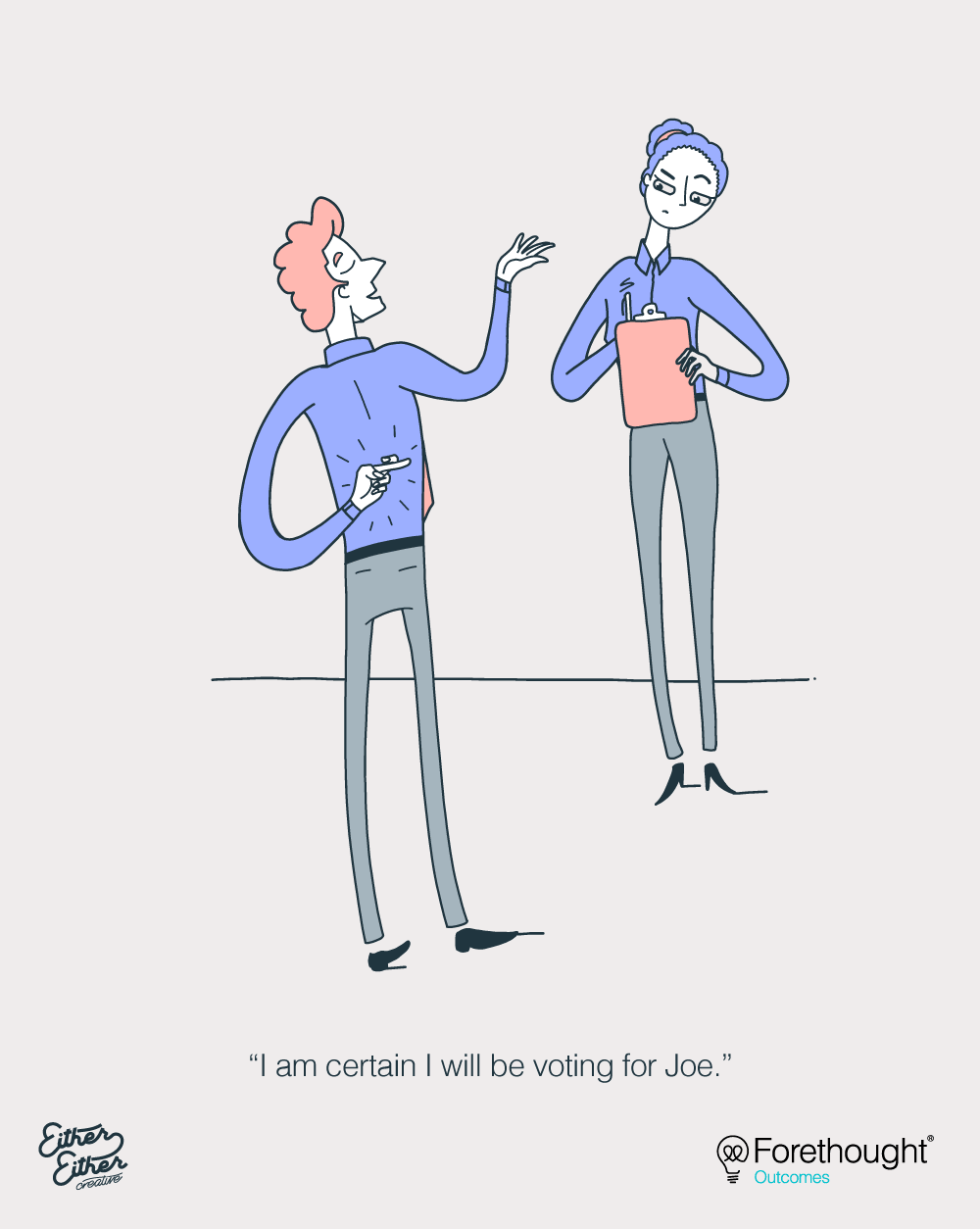Customer Experience, Brand Strategy
What Colonel Nathan Jessup Could Teach Pollsters
Posted 09 Nov 2020
Here we are four years later and again trying to understand how the results fell outside the pollsters’ margins for error (I am only referring to the well-regarded pollsters now). Here is what we do know: pollsters live their lives striving for achieving a representative sample. When it comes to rigorous sampling and weighting, pollsters would consider these elements of survey design and execution as their primary strengths. So, let’s suspend cynicism for a moment and assume that pollsters spoke to the right people and sampling is not the main source of error. What about a simple miscalculation? I think we can all agree that with scrutiny and reputational damage comes a certainty that there have been no simple miscalculations.
That only leaves one source of error: the respondents. Were the respondents dishonest? Are people who participate in surveys habitual liars? Our answer to that is, partly yes and partly no.
Yes, in that social desirability bias causes distortions to the accuracy of polls. In the 1992 motion picture classic, “A few Good Men,” Colonel Nathan Jessup explains to Lieutenant Daniel Kaffee the concept of social desirability bias. “You don’t want the truth because deep down in places you don’t talk about at parties you want me on that wall, you need me on that wall.” People will say they are opposed to armed conflict but inwardly, they want Colonel Jessup in control of the wall at Guantanamo base, Cuba. Could the same be said for some “closet” President Trump supporters?
Perhaps in some quarters, it was unfashionable to say that you intended to vote for President Donald Trump, and this lead to social desirability bias. Social desirability bias is most likely to impact on respondents in focus groups and person-to-person interviews. The relative anonymity of panel membership and online surveys moderates social desirability bias, however, it does remain present. The remedy for social desirability bias is inferred choice as opposed to stated choice.
Stated intentions are a poor substitute for inferred behavior. Inferred behavior is based on hypothesised drivers of choice regressed against a dependent choice variable. People might not do what they state, however, they do what modelling infers at either an electorate or an individual level.
Returning to the question, were the respondents dishonest, the answer is also partly no. For any choice, humans require an emotional detonator. Anxiety, happiness, pride and shame are some of the motivating emotions. In a survey we can be completely rational however, at the point of casting a ballot and deciding, emotion can override rational choice particularly when the choice is complex. It could be argued that President Donald Trump elicits more emotion than President-elect, Joe Biden and therefore, at the point of choice, President Donald Trump benefits from his emotional store. People are not being dishonest. Emotion is influencing their decision at the moment of choice.
Ken Roberts, Chairman Forethought
 Marketing Advisory, Strategy and Analytics
Marketing Advisory, Strategy and Analytics
